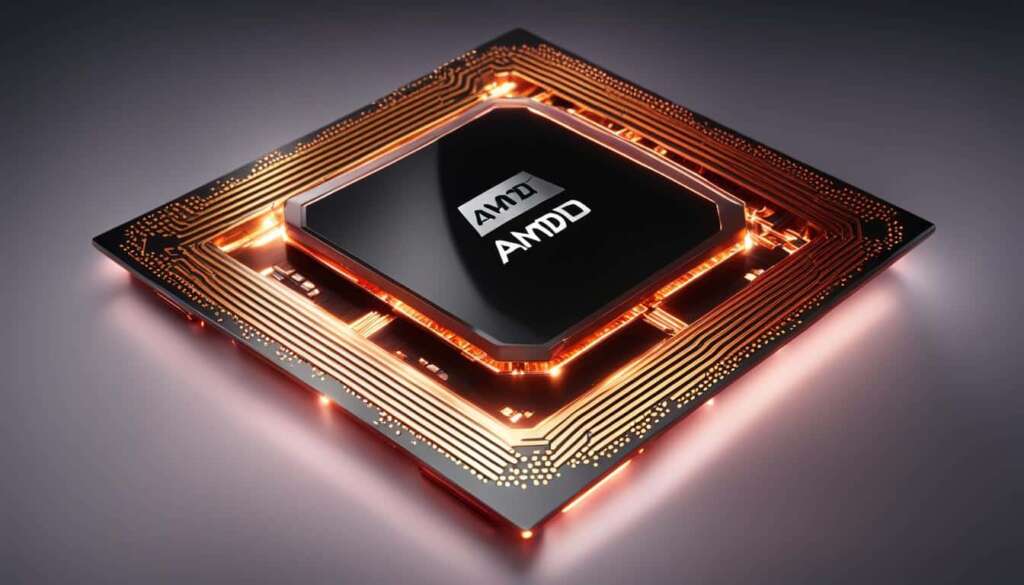Table of Contents
The world of payment processing is constantly evolving, with new technologies and payment avenues emerging. Selecting the right credit card processor is crucial for the success of your business. Understanding the credit card processing world, the role of merchant account providers, payment processors, and payment gateways is essential. There are four main factors to consider when choosing a credit card processor: fees, software compatibility, pricing transparency, and early contract termination charges. It’s important to be aware of red flags to avoid, such as excessive termination fees and nonqualified rates.
Key Takeaways:
- Choosing the right card processor is crucial for secure payment processing and reliable merchant services.
- Consider fees, software compatibility, pricing transparency, and early contract termination charges when evaluating card processors.
- Avoid red flags such as excessive termination fees and nonqualified rates.
- Understand the credit card processing world, including the roles of merchant account providers, payment processors, and payment gateways.
- Make an informed decision by evaluating your business model and sales data and utilizing checklists to compare providers.
Understanding the Credit Card Processing World
When it comes to credit card processing, there is a complex network of entities involved in handling transactions. This process begins with the credit or debit card networks and involves merchant account providers, payment processors, and payment gateways. Let’s take a closer look at each of these key players:
Credit or Debit Card Networks
These are the networks that handle the authorization, authentication, and routing of credit and debit card transactions. Well-known examples include Visa, Mastercard, American Express, and Discover. They ensure that the funds are transferred securely between the cardholder’s bank and the merchant’s bank.
Merchant Account Providers
Merchant account providers offer services and solutions to businesses that enable them to accept electronic payments. They provide Point of Sale (POS) equipment and online payment services, allowing businesses to process credit card transactions. These providers work closely with payment processors to handle the actual processing of these transactions.
Payment Processors
Payment processors act as intermediaries between the merchant account provider and the credit card associations (like Visa or Mastercard) and issuing banks. They handle the technical aspects of processing transactions, including securely transmitting payment information for authorization and settlement.
Payment Gateways
Payment gateways are responsible for facilitating the secure transfer of payment information between the merchant account provider and the payment processor. They act as a bridge, ensuring that the transaction data is encrypted and transmitted securely. Payment gateways make it possible for businesses to accept various payment methods, such as credit cards, debit cards, gift cards, and electronic benefit transfers, through a single merchant account provider.
In summary, credit card processing involves a collaborative effort between credit or debit card networks, merchant account providers, payment processors, and payment gateways. This seamless coordination ensures that businesses can accept and process various forms of payment securely and efficiently.
Stay tuned for Section 3, where we’ll discuss the factors to consider when choosing a credit card processor.
The 4 Factors to Consider When Choosing a Credit Card Processor
When selecting a credit card processor for your business, it’s crucial to take into account several important factors. One of the key considerations is the fees associated with the processor’s services. By understanding the potential costs your business may incur, you can make an informed decision that aligns with your financial goals.
Here are the four factors you should consider when evaluating credit card processors:
- Application Fees: Some processors may charge a one-time application fee to set up your merchant account. It’s important to inquire about these fees upfront and factor them into your decision-making process.
- Setup Fees: Similar to application fees, setup fees are also one-time charges associated with creating your merchant account. These fees can vary between processors, so it’s essential to compare and evaluate before making a decision.
- Monthly Statement Fees and Monthly Gateway Access Fees: These fees are recurring charges that can impact your monthly expenses. Be sure to inquire about the amount and frequency of these fees to assess their impact on your bottom line and make an informed decision.
- Interchange Fees, Monthly Minimum Fee, and Early Contract Termination Fees: Interchange fees are charges paid to credit card associations and issuing banks for processing transactions. It’s important to understand the interchange fee structure and assess how it aligns with your business needs. Additionally, consider the processor’s monthly minimum fee, which is the minimum amount you must process each month. Finally, evaluate the charges for early contract termination, as these fees can vary widely between processors.
It’s also crucial to assess the compatibility of the credit card processor’s proprietary software with your ecommerce shopping cart. Ensure that the two systems can seamlessly integrate and work together to provide a smooth payment process for your customers.
Moreover, when evaluating credit card processors, look for those that offer interchange-plus pricing. This pricing model provides transparency on interchange fees and the fees charged by the payment processor, allowing you to have a clear understanding of the costs associated with each transaction.
Key Takeaways:
When choosing a credit card processor, consider the following:
- Application fees
- Setup fees
- Monthly statement fees and monthly gateway access fees
- Interchange fees
- Monthly minimum fee
- Early contract termination fees
Assess the compatibility of the processor’s software with your ecommerce shopping cart, and look for interchange-plus pricing for transparency on transaction fees. Be aware of potential charges for early contract termination.
By carefully considering these four factors and conducting thorough research, you can choose the credit card processor that best meets the needs of your business, ensuring smooth and cost-effective payment processing.

Red Flags To Avoid In Credit Card Processors
When selecting a credit card processor, it is important to be aware of certain red flags that may indicate unfavorable terms or practices. These red flags include:
- Liquidated Damages Termination Fee: Some processors may impose a liquidated damages termination fee if you cancel the contract within a specific time frame. This fee can result in substantial charges, so it is crucial to thoroughly understand the termination terms before signing any agreements.
- Nonqualified Rates: Nonqualified rates are additional fees charged for specific types of transactions, such as non-swiped or international transactions. These rates can vary significantly between processors, impacting your overall payment processing costs. It is advisable to compare and evaluate nonqualified rates before making a decision.
- Chargebacks: A chargeback occurs when a customer disputes a transaction, and the funds are reversed. Understanding how a processor handles chargebacks is essential to protecting your business’s financial standing. Look for processors with effective chargeback management and dispute resolution processes.
- Payment Processing Fees: It is vital to review sample monthly statements provided by processors to gain visibility into the itemized charges for transactions. This allows you to identify any unexpected or excessive payment processing fees and seek clarification from the processor about their services.
By keeping an eye out for these red flags, you can avoid potential pitfalls and select a credit card processor that aligns with your business needs and budget.
Comparison of Red Flags Across Credit Card Processors
| Red Flag | Processor A | Processor B | Processor C |
|---|---|---|---|
| Liquidated Damages Termination Fee | Yes | No | Yes |
| Nonqualified Rates | High | Low | Medium |
| Chargebacks | Effective management | Limited support | Robust dispute resolution |
| Payment Processing Fees | Transparent and reasonable | Hidden charges | Competitive pricing |
Evaluate your business model and sales data
Before choosing a credit card processor, it’s essential to evaluate your business model and sales data. This evaluation will help you determine the specific requirements and features you need in a credit card processor.
Consider your industry and risk level
In the evaluation process, consider the industry you operate in. Some processors may not work with high-risk businesses, while others specialize in specific industries, such as healthcare or e-commerce. Understanding the risk level associated with your industry will help you find a processor that suits your business needs.
Assess payment methods and preferences
Next, assess the payment methods your customers prefer. Do they primarily use credit cards, debit cards, mobile wallets, or other payment options? Understanding your customers’ preferences will ensure that the credit card processor you choose supports these payment methods, resulting in a seamless checkout experience for your customers.
Determine your sales and processing volume
It’s crucial to determine your current sales and processing volume. This data will help you identify the processing capacity you require from a credit card processor. Whether you’re a small business or a high-volume merchant, choosing a processor that can handle your sales volume is essential to avoid processing delays or bottlenecks.
Assess your payment locations
Consider the various payment locations your business operates in, such as phone, website, brick-and-mortar store, or mobile platforms. Each payment location may have specific requirements for credit card processing. Determine if you need to accept international or in-app payments to ensure that the chosen processor can cater to these needs.
Evaluate integrations and hardware options
If you have existing systems in place, such as an e-commerce platform, point-of-sale (POS) system, or accounting software, evaluate the integrations offered by different credit card processors. Compatibility with your existing systems will streamline your operations and minimize disruptions. Additionally, consider the hardware options required for your business, such as card readers, terminals, or mobile payment devices.
Consider customer surcharge fees
If you’re interested in charging customer surcharge fees, check if the credit card processor offers this option. Surcharge fees allow you to pass on the cost of processing transactions to your customers. However, it’s essential to review local regulations and card network guidelines regarding surcharging to ensure compliance.
By thoroughly evaluating your business model and sales data, you can choose a credit card processor that aligns with your specific needs and requirements. The following table summarizes the key factors to consider during the evaluation process:
| Factors to Consider | Description |
|---|---|
| Industry and Risk Level | Determine if the processor supports your industry’s requirements and risk level. |
| Payment Methods and Preferences | Ensure that the processor supports the payment methods preferred by your customers. |
| Sales and Processing Volume | Choose a processor that can handle your business’s sales and processing volume. |
| Payment Locations | Evaluate if the processor supports the payment locations where your business operates. |
| Integrations and Hardware Options | Check if the processor integrates with your existing systems and offers the hardware you need. |
| Customer Surcharge Fees | Verify if the processor allows you to charge customer surcharge fees. |
By considering these factors and conducting a thorough evaluation, you can make an informed decision when selecting a credit card processor that best suits your business.
Use a checklist to compare credit card processing providers
When choosing a credit card processor, it’s essential to compare different providers to find the one that best suits your business needs. To ensure a comprehensive evaluation, utilize a checklist that covers the key aspects of a credit card processing service. This checklist will help you consider various factors, including fees, customer service, user reviews, provider transparency, reports and analytics, software and hardware compatibility, supported payment methods, online capabilities, fraud detection and prevention tools, and dispute management.
Here’s a breakdown of the elements to assess when comparing credit card processing providers:
Fees
- Transaction fees
- Implementation fees
- PCI DSS compliance fees
- Early contract termination fees
Customer Service
Assessing the level of customer service a provider offers is crucial. Consider the channels available for support, such as phone, email, or live chat, as well as their availability during business hours. Prompt and responsive customer service can help address any issues or concerns that may arise during payment processing.
User Reviews
Research user reviews on review sites and platforms like the Better Business Bureau to gain insights into the experiences and satisfaction levels of past customers. These reviews can provide valuable information about the reliability, efficiency, and overall quality of the credit card processing service.
Provider Transparency
Look for transparency in the provider’s website and interactions with their representatives. A transparent provider will clearly outline their pricing structure, terms and conditions, and any additional fees that may be incurred. This transparency helps you make informed decisions and avoid unexpected surprises.
Reports and Analytics
Evaluate the reports and analytics tools offered by the credit card processor. Comprehensive reporting and analytics can provide valuable insights into your business’s payment trends, sales performance, and customer behavior. These tools can help you make data-driven decisions and optimize your payment processing strategy.
Software and Hardware Compatibility
Ensure that the credit card processor’s software and hardware options are compatible with your existing systems. Seamless integration is crucial for smooth operations and a positive customer experience. Verify the compatibility of the processor’s solutions with your e-commerce shopping cart, point-of-sale (POS) systems, and any other relevant infrastructure.
Supported Payment Methods
Check if the credit card processor supports a wide range of payment methods, including major credit cards, debit cards, alternative payment methods, and mobile payments. The ability to accommodate various payment options ensures convenience for your customers, leading to increased sales and customer satisfaction.
Online Capabilities
Assess the online capabilities of the credit card processor, particularly if you operate an e-commerce business. Verify if the provider offers secure online payment processing, robust fraud detection and prevention measures, and advanced data security to protect your customers’ sensitive information.
Fraud Detection and Prevention Tools
Fraud prevention is a critical aspect of credit card processing. Look for providers that offer comprehensive fraud detection and prevention tools, such as address verification systems (AVS), card verification codes (CVC), and real-time monitoring. These tools help minimize the risk of fraudulent transactions and protect your business and customers.
Dispute Management
Disputes can occasionally arise in the payment processing realm. Evaluate how the credit card processor handles dispute management, including the process for resolving chargebacks and any associated fees. A provider with efficient dispute management procedures can help minimize the financial impact of chargebacks and maintain the integrity of your business.
By using this checklist, you can make a more informed decision when comparing credit card processing providers. Remember that each business has unique requirements, so prioritize the aspects that align with your specific needs and goals.
Develop a shortlist and request quotes
Once you have compared different credit card processing providers, it’s time to develop a shortlist of potential options. This shortlist will help you further evaluate and narrow down your choices before making a final decision. Consider the following steps to create your shortlist:
- Based on your research and analysis, select the top credit card processors that align with your business needs and requirements.
- Consider factors such as fees, software compatibility, pricing transparency, and contract terms.
- Make note of the key features and benefits offered by each processor.
- Consider any additional questions you may have for each provider.
Example:
“Based on my research, I have developed a shortlist of three potential credit card processors – Stripe, PayPal, and Square. These providers offer competitive rates, robust payment processing solutions, and strong customer support services. I am particularly interested in their support for online payments and integration options with my existing ecommerce platform. Now, I will reach out to each provider to request quotes and gather additional information.”
Once you have your shortlist, it’s time to reach out to each credit card processing provider and request quotes. This will give you a clearer understanding of the costs and services associated with each option. Be sure to follow up with any additional questions you may have to gather more information. Here are some questions you may want to ask:
- What are the integration fees?
- Is PCI compliance included?
- What are the contract terms?
- What hardware options are available?
- How long does it take for funds to be transferred to my account?
- Can I access a demo account to test the platform?
Document the information provided by each credit card processor in a spreadsheet to facilitate the decision-making process. This way, you can easily compare the features, pricing, and support services offered by each provider.
Remember, the goal is to choose a credit card processor that not only fits your budget but also meets your business needs and provides excellent support. Take your time to evaluate each option and make an informed decision.
By developing a shortlist and requesting quotes, you will be one step closer to selecting the best credit card processor for your business.
| Provider | Features | Pricing | Support Services |
|---|---|---|---|
| Stripe | Robust payment processing solutions | Transparent pricing with competitive rates | 24/7 customer support via phone, chat, and email |
| PayPal | Wide range of payment options and integration capabilities | No setup or monthly fees, competitive transaction rates | Extensive knowledge base and community forum |
| Square | User-friendly point-of-sale system and online payment platform | All-in-one pricing with flexible transaction rates | Phone and email support during business hours |
Conclusion
Choosing the right card processor is crucial for businesses seeking secure and reliable payment processing. By carefully considering factors such as fees, software compatibility, pricing transparency, and early contract termination charges, businesses can select the best processor to meet their specific needs. It is also essential to be aware of red flags and thoroughly assess the reputation and reliability of potential processors. To make an informed decision that optimizes payment processing capabilities, businesses should evaluate their business model and sales data, utilize checklists for comparing providers, and request quotes.
With the right card processor, businesses can streamline their merchant services and ensure seamless and secure payment processing for their customers. Reliable payment processors offer a range of features and functionalities to support various payment methods, both online and offline. By partnering with a secure payment processor, businesses can enhance customer trust and loyalty, while also minimizing the risks associated with fraudulent transactions and chargebacks.
Merchant services are an integral part of any online or brick-and-mortar business. A reliable payment processor not only facilitates smooth and efficient transactions but also provides essential reporting and analytics tools to help businesses make informed decisions. By choosing a card processor that aligns with their unique requirements, businesses can unlock the full potential of their payment processing capabilities and drive growth and success.
FAQ
What factors should I consider when choosing a credit card processor?
When choosing a credit card processor, it’s important to consider fees, software compatibility, pricing transparency, and early contract termination charges.
How does credit card processing work?
Credit card processing involves a chain of entities, starting from the credit or debit card networks to merchant account providers who work with payment processors to handle transactions. Payment gateways facilitate secure interactions between the merchant account provider and payment processor.
What are the fees I should be aware of when choosing a credit card processor?
Fees associated with credit card processing can include application fees, setup fees, monthly statement fees, monthly gateway access fees, interchange fees, and monthly minimum fees.
What are some red flags to watch out for when selecting a credit card processor?
Red flags to avoid include excessive termination fees and nonqualified rates, which can vary significantly and result in additional charges for certain types of transactions.
How should I evaluate my business model and sales data when choosing a credit card processor?
It’s important to consider the industry you operate in, the payment methods your customers prefer, the sales and processing volume your business experiences, the payment locations you will be using, and the integrations and hardware options you require.
What should I consider when comparing credit card processing providers?
When comparing providers, consider their fees, level of customer service, user reviews, provider transparency, reports and analytics offered, software and hardware compatibility, supported payment methods, online capabilities, fraud detection and prevention tools, and dispute management procedures.
How do I develop a shortlist of potential credit card processing providers?
Contact each provider to request quotes and ask additional questions. Evaluate their customer support services, response times, integration fees, PCI compliance, contract terms, hardware options, fund transfer times, and access to demo accounts.
Why is choosing the right card processor important for businesses?
Choosing the right card processor is vital for businesses to ensure secure and reliable payment processing that aligns with their specific needs and requirements.
Source Links
- https://www.bigcommerce.com/ecommerce-answers/4-steps-to-choosing-a-credit-card-processor/
- https://www.uschamber.com/co/run/finance/credit-card-processing-provider-guide
- https://stripe.com/resources/more/how-to-choose-a-payment-processor







